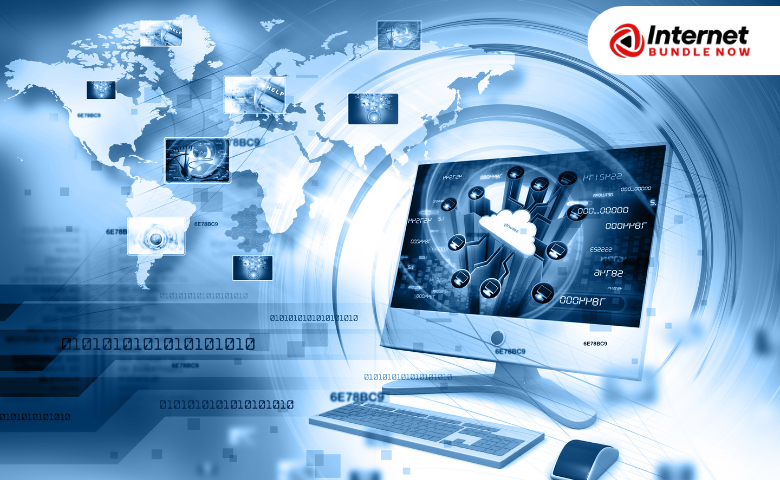- TV
How to Get Premium Channels with Your Cable TV Bundle?
Access to exclusive entertainment content is a priority for many viewers seeking a richer television experience. Premium chan...
Explore More
As the digital age continues to evolve, the demand for reliable and fast internet connections has never been higher. Whether you're a tech enthusiast eager to explore the intricacies of network technology or a remote worker needing seamless connectivity, understanding the different types of internet connections available in the USA is crucial. In this comprehensive guide, we'll delve into various internet connection types, their advantages, and ideal use cases. Let's explore the landscape of internet connectivity and how Internet Bundle Now can meet your needs.
What is DSL?
DSL stands for Digital Subscriber Line, a type of internet connection that transmits data over traditional copper telephone lines. It offers a stable and widely available solution, especially in regions where modern infrastructure might be lacking.
Advantages:
Ideal For:
What is Cable Internet?
Cable internet uses the same coaxial cables that deliver cable television to provide high-speed internet access. It's a popular choice due to its wide availability and robust speed capabilities.
Advantages:
Ideal For:
What is Fiber-Optic Internet?
Fiber-optic internet uses thin strands of glass or plastic fibers to transmit data as light signals. This cutting-edge technology offers the fastest internet speeds currently available.
Advantages:
Ideal For:
What is Satellite Internet?
Satellite internet beams data to a satellite in space, which then communicates with a dish installed at the user's location. While historically slower, advancements have significantly improved its performance.
Advantages:
Ideal For:
What is Fixed Wireless Internet?
Fixed wireless internet connects users to the internet via radio signals from a base station. It doesn't require cables, making it a flexible solution for various environments.
Advantages:
Ideal For:
6. 5G Internet
The fifth generation of mobile network technology, 5G, offers significantly higher speeds and lower latency compared to its predecessors. It is revolutionizing internet connectivity with its enhanced capabilities.
Advantages:
Ideal For:
With so many options available, selecting the right internet connection depends on your specific needs and circumstances. At Internet Bundle Now, we are committed to helping you find the perfect fit for your internet requirements. Here's how we can assist:
Understanding the different types of internet connections available in the USA is essential for making an informed decision that best suits your lifestyle and work requirements. Whether you're captivated by the possibilities of fiber-optic speed, the reliability of cable, or the accessibility of satellite, there's a solution out there for everyone.
Ready to upgrade your internet experience? Contact Internet Bundle Now today and let us connect you to the future.
Latest insights, tips, and updates from our experts.
Admin
What are the Major Types of Internet Connections in USA?